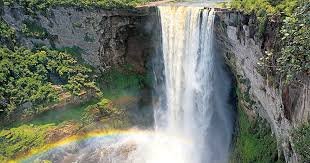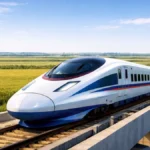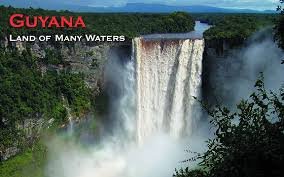Which Country Is Known as the “Land of Many Waters”?
Introduction to the “Land of Many Waters”
The term “Land of Many Waters” refers to a country rich in rivers, lakes, and waterways, providing it with a distinctive natural identity. This title is often associated with the South American nation of Guyana. Guyana is located on the northeastern coast of South America and is renowned for its diverse and extensive water systems, which include vast river networks, waterfalls, and wetlands. The country is not only unique for its geographical features but also for the role water plays in its cultural, social, and economic life.
Geographical Features of Guyana
Guyana is blessed with a wealth of natural water resources. The Essequibo River, the longest river in the country, along with other significant rivers such as the Demerara and Berbice, flow through the country and provide crucial transportation routes. Additionally, Guyana’s vast interior region is home to expansive wetlands, making the country one of the most water-abundant nations globally. The Kaieteur Falls, one of the world’s most powerful waterfalls, is also located within Guyana, adding to its water-related natural beauty.
Waterways and Their Importance to Guyana
The extensive river systems in Guyana play a vital role in the daily lives of its citizens. They serve as transportation routes, especially in regions that are difficult to access by road. These waterways also support fishing, which is a key industry for many communities. Furthermore, Guyana’s waterways are essential for agriculture, providing irrigation for crops like rice, sugarcane, and vegetables. The presence of such abundant water resources has shaped the country’s development and the livelihoods of its people.

Why this News is Important: Understanding Guyana’s Natural Identity
Impact on Economic Activities
Guyana’s extensive water systems are critical to its economy. Rivers and lakes are not only transportation channels but also vital for key industries like agriculture and fishing. Guyana is a major exporter of rice, sugar, and seafood, and these sectors are heavily reliant on the country’s water resources. Understanding the significance of these waterways highlights the essential role water plays in sustaining Guyana’s economic growth and regional trade.
Implications for Sustainable Development
Given its reliance on natural water resources, Guyana must focus on sustainable management of its water systems to protect its environment. With climate change causing sea-level rise and extreme weather events, there is an urgent need to ensure the preservation and optimal use of these vital resources. This news is a reminder of the challenges and opportunities associated with managing water in a country that is so deeply connected to it.
Geopolitical Significance of Water Resources
In addition to economic implications, the vast waterways of Guyana hold geopolitical importance. Rivers, lakes, and other water systems are often points of dispute or cooperation among neighboring nations. Guyana’s water resources can affect its relations with countries like Venezuela and Brazil, which also rely on similar waterways for access to the Amazon basin. Therefore, understanding Guyana’s title as the “Land of Many Waters” provides insight into the importance of water for regional and international politics.
Historical Context: Guyana and Its Waterways
Guyana, formerly known as British Guiana, was established as a British colony in the early 19th century. Its colonial history played a significant role in the development of its infrastructure, particularly in relation to waterways. The British constructed numerous canals and drainage systems to manage flooding and support agricultural activities, particularly sugarcane farming.
Historically, Guyana’s waterways have been crucial for trade and transportation, especially when the country was an important part of the sugar and rice trade within the British Empire. Even after gaining independence in 1966, Guyana’s rivers remained the lifeblood of its rural economy, with the majority of the population still residing along these water bodies.
Guyana’s rivers also serve as major cultural symbols. The indigenous people of the region have long relied on these water systems for their livelihoods, shaping the culture of the nation. Today, these water resources continue to define Guyana’s national identity and play a pivotal role in its continued development.
Key Takeaways from “Land of Many Waters”
| Serial No. | Key Takeaway |
|---|---|
| 1 | Guyana is known as the “Land of Many Waters” due to its extensive network of rivers, lakes, and waterfalls. |
| 2 | The Essequibo River is the longest river in Guyana, along with other important rivers like Demerara and Berbice. |
| 3 | Waterways in Guyana are vital for transportation, agriculture, and fishing, forming the backbone of its economy. |
| 4 | The Kaieteur Falls, one of the world’s most powerful waterfalls, is located in Guyana, enhancing its natural beauty. |
| 5 | Understanding Guyana’s reliance on water resources highlights the need for sustainable management to protect its economy and environment. |
Important FAQs for Students from this News
Q1: What country is referred to as the “Land of Many Waters”?
- Answer: The country referred to as the “Land of Many Waters” is Guyana, located in northeastern South America. It is known for its extensive river systems and vast water resources.
Q2: What are the main rivers in Guyana?
- Answer: The main rivers in Guyana include the Essequibo River, Demerara River, and Berbice River. These rivers play a crucial role in transportation, agriculture, and the overall economy of the country.
Q3: What is the significance of the Kaieteur Falls in Guyana?
- Answer: Kaieteur Falls is one of the most powerful waterfalls in the world and is a significant natural attraction in Guyana. It contributes to the country’s tourism industry and is a key feature of its diverse water resources.
Q4: Why is the water system important to Guyana’s economy?
- Answer: Guyana’s water systems are vital for its economy, as they support industries such as agriculture (especially rice and sugarcane farming) and fishing. The waterways also serve as key transportation routes in rural regions.
Q5: What are the challenges faced by Guyana concerning its water resources?
- Answer: Guyana faces challenges related to the sustainable management of its water resources, especially with the rising threat of sea-level rise and extreme weather events due to climate change.
Some Important Current Affairs Links

















